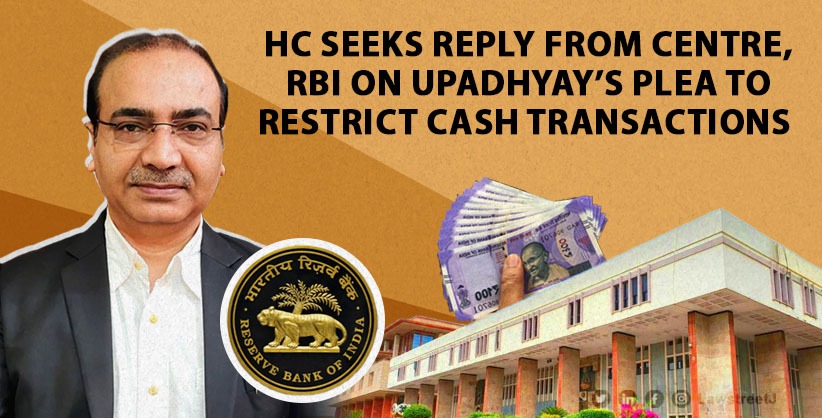NEW DELHI: The Delhi High Court on Wednesday sought a response from the Centre and others on a PIL by advocate Ashwini Kumar Upadhyay to restrict cash transactions of Rs 10,000 and above for goods, products and services in order to control to corruption, black money generation, and money laundering.
A bench of Chief Justice Satish Chandra Sharma and Justice Tushar Rao Gedela asked Additional Solicitor General Chetan Sharma and Delhi government counsel Santosh Kumar Tripathi to file their responses in the matter.
The court posted the matter for consideration on August 1, 2023.
The matter was argued by Upadhyay in person.
In his plea, Upadhyay also sought a direction to the Centre, RBI and others to restrict cash transactions for goods, products and services, purchased through the online shopping platforms such as Amazon and Flipkart.
In his petition, he also sought restriction of cash payment in transactions of Rs 10,000 and above, including for air tickets, rail tickets, electricity bills, liquefied petroleum gas bills, compressed natural gas bills, municipality bills and other such bills.
Upadhyay also wanted restriction on cash transactions for all the industrial and domestic goods, products and services of maximum retail price of Rs 10,000 and above.
"India cannot move forward without clean, transparent governance for which a corruption-free society is a basic requirement and that is impossible without recalling currency above Rs 100, restricting cash transactions above Rs 10,000, linking assets above Rs 50,000 with Aadhaar and confiscating 100% black money, disproportionate assets and benami property and giving rigorous life imprisonment to looters," his plea stated.
He contended that it is the duty of the government to examine good practices of that are ranked amongst top 20 in the Corruption Perception Index, and implement them to give a strong message that the country is determined to fight against the menace of corruption and black money.
Emphasising on the benefits of the move, he said that such a step would give adequate tax revenue to the Centre, states and local bodies, transparency in the economy, approximately 10% drop in commodity prices, loan at approximately 5% annual rate of interest and a 10% reduction in construction cost.
The petitioner said that the move will lead to an increment of 2% in annual GDP.
It will also clean the electoral process, which is dominated by black money and benami transactions and thrives on cycle of black investments, capture of power through foul means, use of political strength to amass private wealth, all with disdain of the citizen, the petitioner claimed.
"In order to gradually bring all citizens under digital payment world it is prudent to introduce a cashback scheme for 46.3 crore Jan Dhan account holders belonging to mainly poor who may use digital payment gateways for cash transfers," he suggested.







